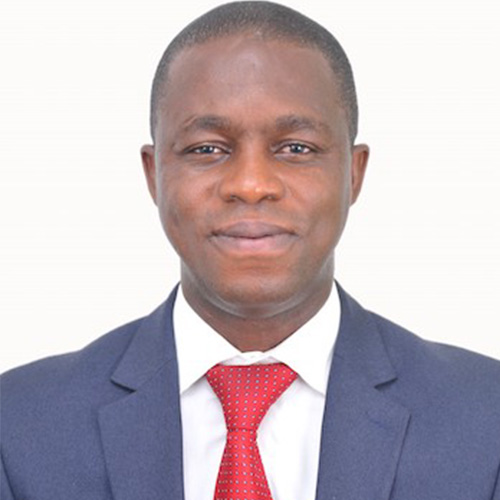
Philip Antwi-Agyei
Country (Nationality)
Ghana
Grantee Title
Project: Mainstreaming Climate Services for Resilient Agricultural Systems and Sustainable Development in Ghana and Implications for West Africa
Grantee Description
Antwi-Agyei is a Senior Lecturer at the College of Science, Kwame Nkrumah University of Science and Technology, Ghana. He completed his Ph.D. at the University of Leeds, United Kingdom in 2013 and his Ph.D research focused on the “vulnerability and adaptation of Ghana’s food production systems to climate change and variability” which was funded by the Commonwealth Scholarships, United Kingdom.Agyei is an interdisciplinary environmental scientist whose research focuses on developing innovative multi-scale approaches for assessing vulnerability to climate change for dryland and fragile farming systems in sub-Saharan Africa. Agyei’s research uses spatial databases, ecological surveys and field-based participatory studies to achieve a broader understanding of how climate change affects food production and rural livelihoods.
Antwi-Agyei was a Lead Author for the Intergovernmental Panel on Climate Change (IPCC) Special Report on the impacts of global warming of 1.5 oC above pre-industrial levels, where he worked closely with other scientists across the globe on “Sustainable Development, Poverty Eradication and Reducing Inequalities”. He has presented his research findings in several international conferences and published extensively in reputable academic journals. He has been a Visiting Researcher at the Centre for Climate Change Economics and Policy, University of Leeds, United Kingdom. Currently, Philip is co-supervising three (3) finishing PhD students, 5 MPhil/MSc students and 15 undergraduate students.
Project: Mainstreaming Climate Services for Resilient Agricultural Systems and Sustainable Development in Ghana and Implications for West Africa
Whilst the capability of improved climate information services to reduce climate impacts is alluring, empirical evidence on how to mainstream climate information services is lacking. Philip’s project addresses this important research gap to advance knowledge on how to mainstream climate information for resilience building in Ghana. Findings from Philip’s research will contribute to building a climate change resilience (SDG13) that will result in more resilient livelihoods (SDGs 1 and 2). This project will also identify the opportunities and institutional challenges for mainstreaming climate information services, whilst supporting the further development of Nationally Determined Contributions and Climate Change Policies of Ghana by informing adaptation practices of smallholder farmers.
